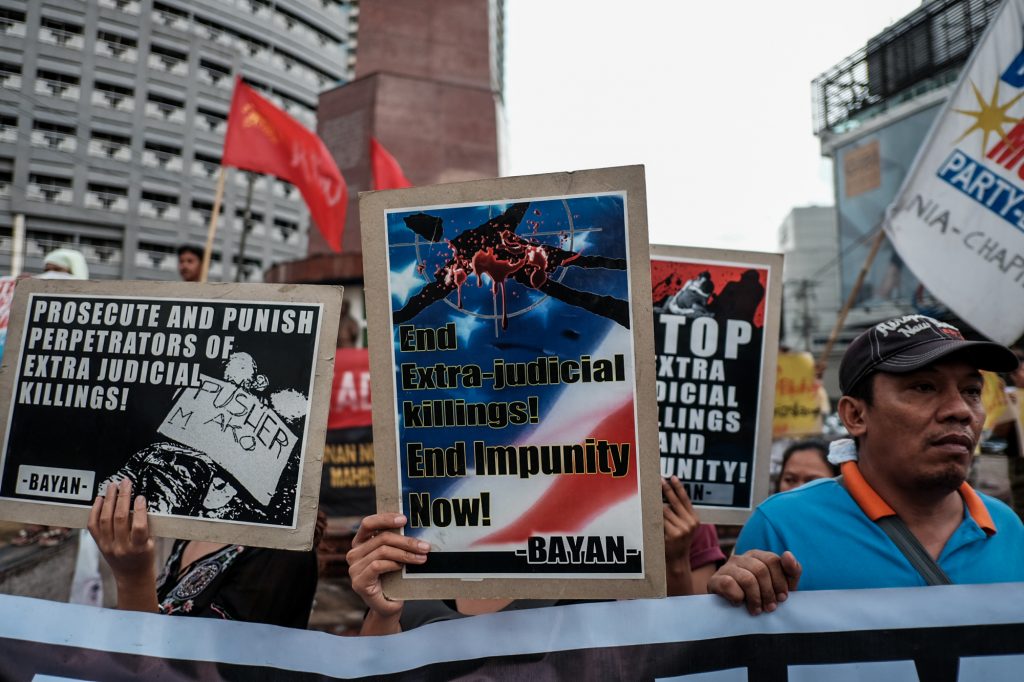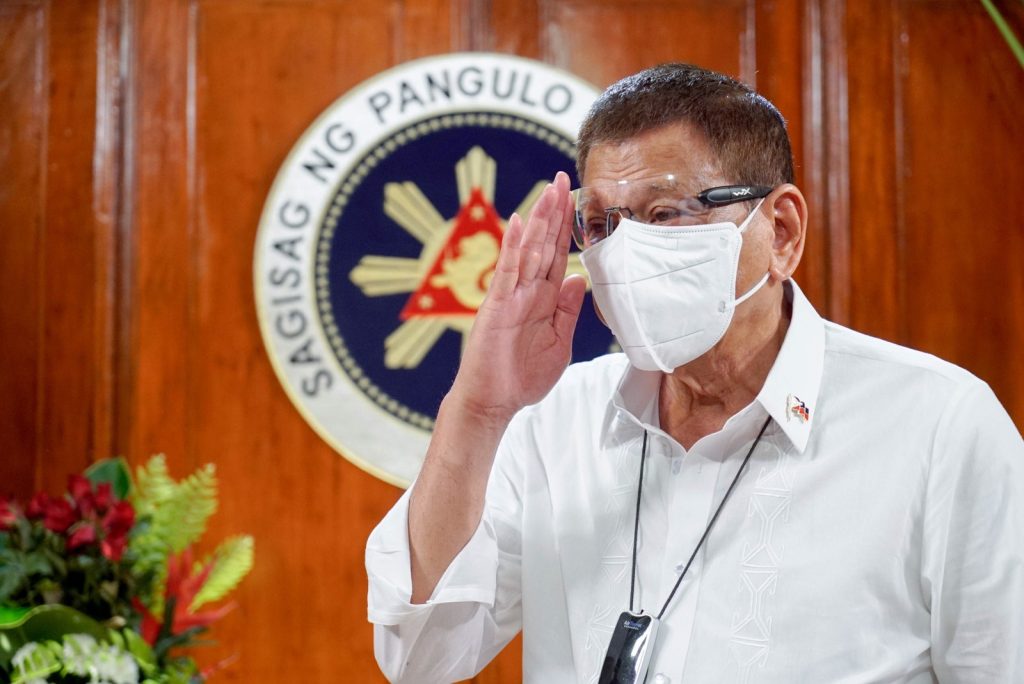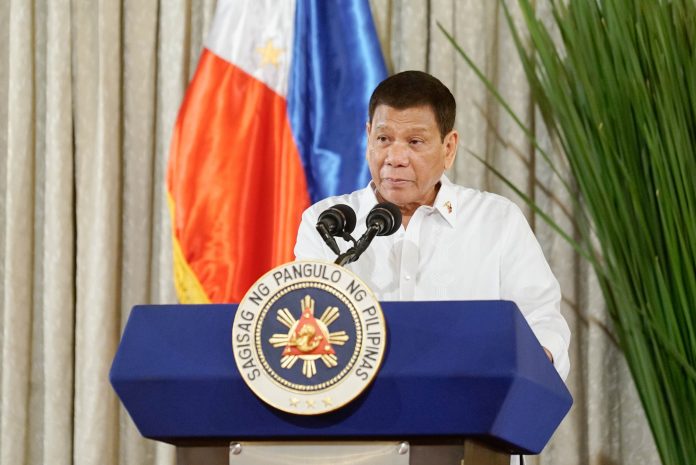The International Criminal Court (ICC) has approved a formal investigation into “crimes against humanity” allegedly committed by Philippine President Rodrigo Duterte.
The court said on Wednesday, September 15, that ICC judges had approved a request by prosecutors to begin the investigation into Duterte’s “so-called ‘war on drugs’ campaign.”
The judges said that the anti-illegal drugs drive “cannot be seen as a legitimate law enforcement operation,” but amounted to a systematic attack on civilians.
At least 6,181 people have died in more than 200,000 anti-drug operations conducted since July 2016, according to the latest official data released by the Philippines.
ICC prosecutors in court papers estimate the figure to be between 12,000 to 30,000 dead.
Duterte has repeatedly attacked the world’s only permanent war crimes court, calling it “bullshit” and vowing not to cooperate with its probe.
Presidential spokesman Harry Roque said on Thursday that Duterte had “no reaction” to the ICC announcement.
“From the start he has said he will die first before he will face foreign judges,” Roque told reporters in Manila.
“If there are complaints, they have to be adjudged in the Philippines because our courts are functioning, and the ICC court has no jurisdiction.”
But the country’s top judges disagreed, ruling earlier this year that the ICC can prosecute “government actors” for alleged crimes committed before the nation withdrew from the tribunal.

The ICC said there was a “reasonable basis” to believe that the crime against humanity of murder had been committed in the crackdown.
Its investigation will also cover alleged extra-judicial killings in the southern Davao region between 2011 and 2016, when Duterte was mayor.
Duterte, barred under the constitution from seeking a second term, declared last month he will run for the country’s second-highest office next year.
Critics said the move was partly driven by fear of criminal charges, though there is debate over whether the vice president enjoys legal immunity.
Duterte not cooperating with ICC
Duterte’s lawyers said the president will not cooperate with the ICC probe.
Chief presidential legal counsel Salvador Panelo told local radio DZBB that the president “will not cooperate since first of all, the Philippines has left the Rome Statute, so the ICC no longer has jurisdiction over the country.”
“The government will not let in any ICC member to collect information and evidence here in the Philippines. They will be barred entry.”
Duterte pulled Manila out of the Hague-based court after it launched a preliminary probe, but the ICC said it had jurisdiction over crimes committed while the Philippines was still a member.

Rights groups, lawyers and relatives of people killed in the drug war welcomed the ICC decision.
“I’m glad because this might be a way for us to get justice for the deaths of our loved ones,” said Corazon Enriquez, who blames Duterte for the killing of her son during a police raid in 2016.
“That’s what we’re hoping for — for that person responsible for the deaths of our children and family members to pay.”
Edre Olalia, president of the National Union of Peoples’ Lawyers, said the organization hoped this was “the beginning of the end to impunity.”
Human rights group Karapatan said “Duterte and his cohorts should be made accountable for these crimes.”
Phil Robertson, Human Rights Watch Asia deputy director, described the ICC decision as a “fantastic news for the cause of human rights, accountability in the [war on drugs] in the Philippines.”
“[This is a] very important step forward for finally seeing people being held accountable for EJKs and abuses perpetrated” by the Philippine National Police and those “under orders from [the presidential palace].”
Lawyer Kristina Conti, counsel of the group Rise Up for Life and for Rights, said the chamber’s decision is a challenge that her colleagues will “accept” in assisting the ICC prosecutor.

Inciting deadly violence
Rights groups have repeatedly accused Duterte of inciting deadly violence, saying police have murdered unarmed drug suspects on a massive scale as part of the anti-drugs campaign.
In a July speech, Duterte lashed out at the court, saying he would continue his fight against drugs.
“I have never denied (it), and the ICC can record it: Those who destroy my country — I will kill you,” he said.
Although the Philippines has withdrawn from membership of the ICC, it was a member between July 2016 and March 2019, the period covered by the prospective investigation.
The ICC judges said that relevant crimes appeared to have continued after that date, but that the court was limited to investigating those suspected to have occurred while the Philippines was a member.
In its 41-page decision, the Pre-Trial Chamber I of the ICC said an investigation is warranted to dig into cases of murder, torture, and sexual violence, among others, that took place between Nov. 1, 2011, and March 16, 2019.
The judges said available evidence indicates that groups of local police officers and vigilantes were involved in 385 extrajudicial killings that targeted “predominantly young men suspected of involvement in small-scale drug dealing or minor crimes such as petty theft and drug use.”
“The Chamber notes in particular the information to the effect that a so-called ‘Davao death squad’ operated, and that local law enforcement units were heavily involved in its operation,” it added. – with a report from AFP









